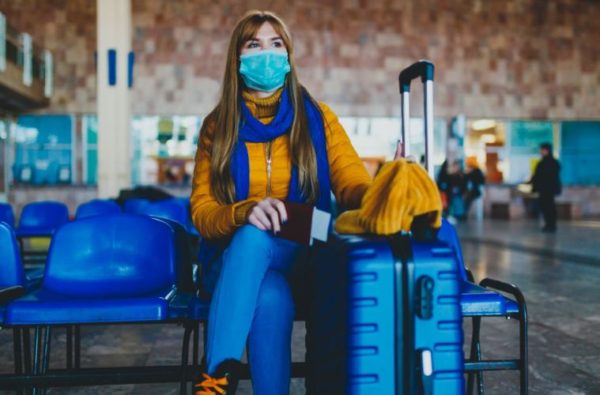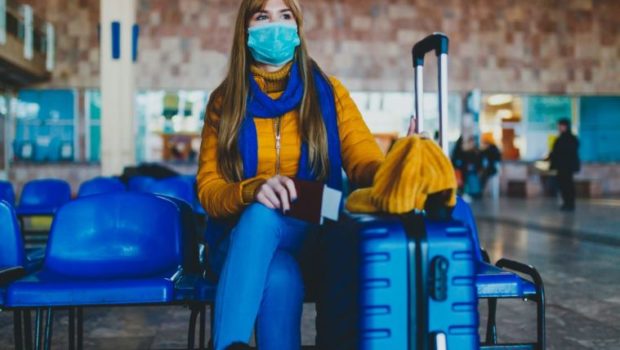Destination Unknown: Traveling during COVID-19
Since the first case of COVID-19 was reported in China, the world almost came to a standstill. The high infectivity nature of the disease demanded limited or no movements of people. It was actually proven that staying at home, with no physical contact with other people was the only sure way to stay free from the virus.
Unfortunately, the virus spread globally within no time. Nations closed their borders and imposed lockdowns, cessations, and curfews. Remote working was encouraged in an effort to decongest working premises. In addition, the economy deteriorated forcing the closure of many businesses that led to high unemployment rates.
Worse still, there has not been found a cure for the virus yet. In fact, The World Health Organization warned the disease might be here to stay. This only means the world must adapt to living the new normal. Life must continue, and this includes resuming travel provided the safety measures are observed strictly.

Obviously, a Post COVID-19 travel has some permanent changes from previous travels and I always check a Covid Testing Site Near Me before initiating my travels. Before you travel, please consider the following:
1. Additional Travel requirements
Before making the decision to travel, be very mindful of your choice of destination. It would be highly risky for you to travel to a place with very high infection numbers. If need be, be flexible enough to change to another destination. Also, you should be cautious if you have any underlying medical condition to avoid the risk of getting serious complications in case you get infected.
A clearance certificate to certify you are not infected is likely to be made a mandatory document when traveling. In case a vaccine is invented, you would need to get vaccinated and issued with a certificate before being cleared to travel, especially outside the country.
Ensure your travel bag has a facemask and a hand sanitizer (with 60% alcohol).
2. Maintaining social distance
During travel, the risk of being in contact with other people is high. At the airlines during check-ins, you are most likely to come into contact with a lot of people. The same case can happen in public transport, at bus stops and trains.
It would be safer to get a private jet if your budget allows it. Additionally, avoid commuting by public means. You can apply for an international drivers license as a permit to drive yourself around in a foreign country.
You should also take caution with your choice of accommodation. It is most likely that after the lockdowns have been lifted, more people would want to travel leading to hotels being overcrowded especially during holidays. Consider renting out a vacation rental. Your privacy will be guaranteed as you can be able to limit access to the premises. Apart from this, if you are looking for the safest countries to visit then Canada can be a great option. According to Toronto safety report, Toronto is among the safest cities to visit in CA, so you can consider it while planning your next vacation.
3. Check-out for your destination safety laws and requirements
Before settling on a travel destination, be keen on the laws put in place at your preferred destination. Some countries are still closing their borders. Others have imposed lockdowns in some cities while others have a late night and early morning curfews.
Some countries require all travelers to have a mandatory quarantine of 14 days before getting in contact with the locals. In other countries, it is actually a criminal offense to walk around without a face mask on.
Additionally, you might be required to register with your embassy in the host country. You notify them of your arrival and the period of time you intend to stay. You might be required to surrender extra personal details in case there would arise a need to trace you.
4. Consideration when traveling with your family
Research on the virus has shown that older people and those who are terminally ill have a higher risk of getting severe complications if infected. The children might also be at a higher risk since they are still developing their immunity. It would be safer not to include the older people in the family when traveling. If you decide to bring the children along, you might want to get a doctor’s opinion first. If granted, ensure they are able to keep the safety measures all the time such as wearing masks and washing their hands.
After travel, it would be better to stay away from other family members in your house for some days. This is to make sure you don’t put them at risk in case you contracted the virus on the way home.
Conclusion
Evidently, COVID-19 is a threat to humans and it is a killer disease. For that, you have to keep your safety as a top priority. By protecting yourself, you are also protecting your loved ones and the community. Whether you are traveling or not, be vigilant, and follow the safety guidelines keenly.
















